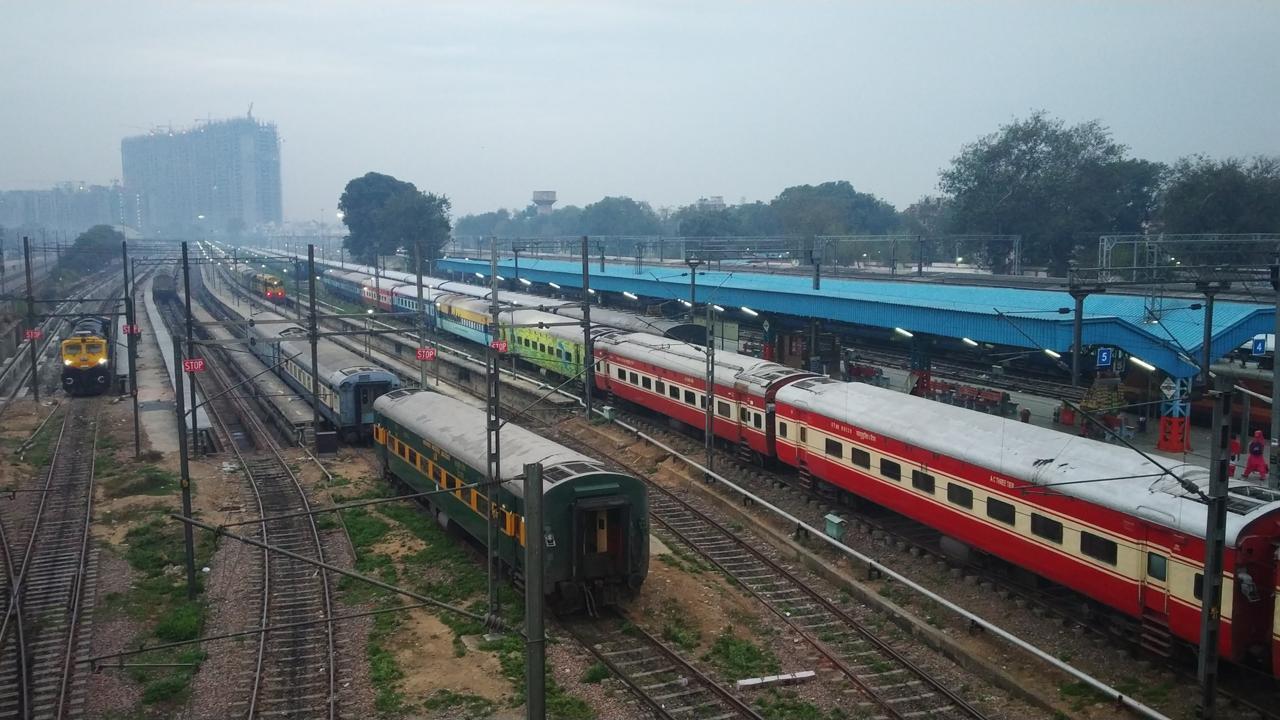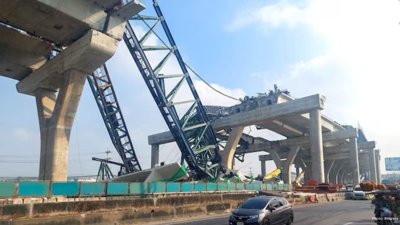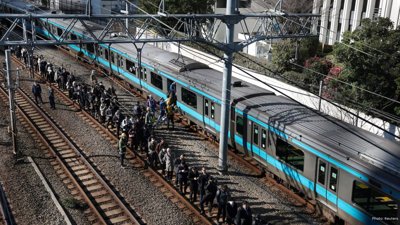
Post by : Amit
Landmark Sanitation Milestone for the World's Fourth Largest Rail Network
In a sweeping stride towards sustainability and cleanliness, Indian Railways has achieved a major milestone by equipping 100% of its passenger coaches with bio-toilets. This development, hailed as a “sanitation revolution on rails,” reflects the government’s commitment to transforming the Indian transportation sector into an environmentally responsible and health-conscious system.
With more than 70,000 coaches now fitted with bio-toilets, the move is expected to eliminate open discharge on tracks, drastically improving cleanliness at stations and along railway corridors. It also marks a pivotal moment in India's journey toward a greener, more hygienic public transport ecosystem, aligning with national missions like Swachh Bharat Abhiyan and global Sustainable Development Goals (SDGs).
The Bio-Toilet System: How It Works
The bio-toilet technology used by Indian Railways is based on anaerobic digestion. Human waste passes from the toilet into a biological digester tank beneath the coach, where it is broken down by specially cultured bacteria. These bacteria convert the waste into water and methane gas, leaving behind minimal residue.
The treated water is discharged onto the tracks after filtration, but it is far less harmful than untreated human waste. Importantly, this system removes the need for manual scavenging and significantly reduces foul odors, pathogens, and environmental damage.
From Filthy Tracks to a Cleaner Future
Before this transformation, the Indian Railways was infamous for the practice of direct discharge—where human waste from trains was dumped directly onto railway tracks. This led to unhygienic conditions, corrosion of rails, and a constant challenge for cleaning crews, particularly in high-traffic stations.
The large-scale installation of bio-toilets has not only cleaned up thousands of kilometers of railway tracks but also dramatically reduced the maintenance costs associated with corrosion and waste management. Railway officials state that this transition will save millions of rupees annually in infrastructure upkeep.
The Implementation Journey: A Nationwide Engineering Feat
The rollout of bio-toilets across such a vast network was no small feat. Indian Railways had to retrofit old coaches while ensuring that all newly manufactured coaches were bio-toilet compliant. The journey began around 2011, with the first installations developed in partnership with the Defence Research and Development Organisation (DRDO).
Over the years, the railways scaled the effort with help from over 25 production units and maintenance depots, converting hundreds of coaches every month. The logistical challenges included training thousands of technicians, sourcing robust bacterial cultures, modifying undercarriage designs, and ensuring passenger comfort during the switch.
Green Transport and Environmental Gains
From an environmental perspective, bio-toilets represent a low-cost, scalable, and sustainable sanitation solution. By preventing human waste from entering ecosystems untreated, Indian Railways is making significant strides in reducing soil and water contamination along its tracks.
The methane gas produced in bio-digesters is safely vented or contained, and Indian Railways is reportedly exploring ways to harness this gas in the future for power generation at depots or stations. In the long term, the impact of this green transition could contribute meaningfully to India’s broader decarbonization targets.
Positive Social Impact Across Regions
Beyond environmental benefits, the impact of bio-toilets is deeply social. Railway staff responsible for cleaning platforms and tracks have already reported significantly improved working conditions. Porters, maintenance crews, and sanitation workers are no longer exposed to raw sewage while doing their jobs, marking a major shift in dignity and safety in railway employment.
Moreover, this shift aligns closely with India’s goal of eliminating manual scavenging—one of the most dehumanizing forms of labour that has historically plagued public sanitation systems.
Passenger Experience Gets a Boost
Passengers, too, are experiencing cleaner journeys. With no foul smells and reduced chances of clogged systems, feedback on the bio-toilet initiative has been largely positive. Indian Railways has also launched cleanliness awareness drives to educate passengers on the proper use of the new toilets, discouraging the disposal of plastic and non-biodegradable waste inside the units.
As part of its upgraded passenger services, Indian Railways has integrated bio-vacuum toilets in premium trains like Vande Bharat and Tejas Express, which offer better suction systems and require even less water—further enhancing water conservation on board.
A Global Model for Developing Nations
India’s success in implementing bio-toilets at such an unprecedented scale has drawn attention from several developing countries facing similar sanitation challenges in rail networks. Railway experts from African, Southeast Asian, and South American countries have visited Indian facilities to study the implementation model, costs, and maintenance logistics.
With Indian Railways being the fourth-largest rail network in the world, such a transformation signals what is possible when sanitation, sustainability, and transport policy are pursued together at scale.
Continuous Improvement and Innovation
Although the installation phase is complete, Indian Railways is not stopping here. Efforts are now focused on regular maintenance, bacterial replenishment, and public awareness to ensure long-term success. Trials for next-generation bio-digester systems and sensor-based monitoring are also underway, which will help automate the detection of waste levels and improve servicing schedules.
Future iterations may include odor-neutralizing technologies, smarter tank designs, and systems that can recycle greywater within the coaches for reuse in flushing—further reducing environmental footprints.
A Sanitation Success Story in Motion
The equipping of all Indian Railways coaches with bio-toilets stands as a major leap forward for public sanitation and eco-conscious mobility in India. More than just a hardware upgrade, it’s a cultural shift—toward cleaner travel, healthier work environments, and greater responsibility in public systems.
This transformation demonstrates how a commitment to sustainable infrastructure can yield large-scale environmental and social dividends. As millions continue to rely on trains daily, Indian Railways has proven that green mobility is not just a future ideal—it’s already on track.
India, Railways, Sanitation










Advances in Aerospace Technology and Commercial Aviation Recovery
Insights into breakthrough aerospace technologies and commercial aviation’s recovery amid 2025 chall

Defense Modernization and Strategic Spending Trends
Explore key trends in global defense modernization and strategic military spending shaping 2025 secu

Tens of Thousands Protest in Serbia on Anniversary of Deadly Roof Collapse
Tens of thousands in Novi Sad mark a year since a deadly station roof collapse that killed 16, prote

Canada PM Carney Apologizes to Trump Over Controversial Reagan Anti-Tariff Ad
Canadian PM Mark Carney apologized to President Trump over an Ontario anti-tariff ad quoting Reagan,

The ad that stirred a hornets nest, and made Canadian PM Carney say sorry to Trump
Canadian PM Mark Carney apologizes to US President Trump after a tariff-related ad causes diplomatic

Bengaluru-Mumbai Superfast Train Approved After 30-Year Wait
Railways approves new superfast train connecting Bengaluru and Mumbai, ending a 30-year demand, easi